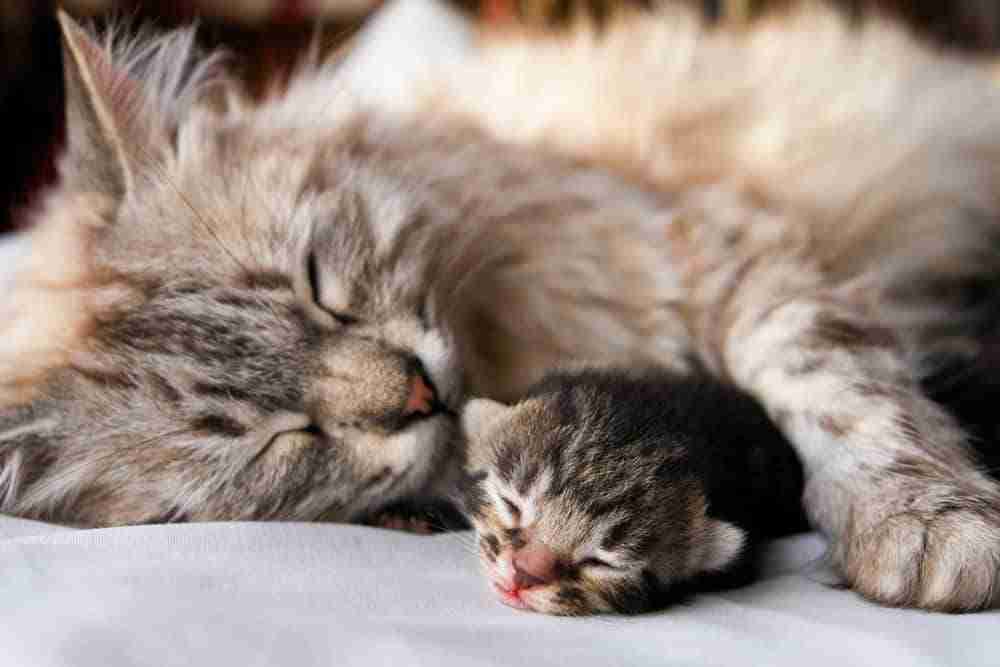Did your cat recently give birth to kittens? Congratulations! Kittens are cute clumps of fur, but unfortunately, not all of them will make it out of the first few weeks of life.
- How Much Water Does My Kitten Need Every Day?
- What are the Common Symptoms of Dehydration in Kittens?
- What are the Causes of Dehydration in Kittens?
- How Does the Vet Diagnose Dehydration in My Kitten?
- How Do You Treat a Dehydrated Kitten?
- Recovery of Dehydration in Kittens
- Tips for Saving a Dehydrated Kitten – Key Takeaways
Your newborn kittens are at risk of “fading” due to vulnerabilities in the biological mechanisms regulating body temperature.
The complications of this issue in kittens make them predisposed to low-blood sugar disorders (hypoglycemia), as well as dehydration.
Dehydrated kittens don’t last long, and rapid death occurs if the kitten doesn’t receive medical attention.
This post gives you tips for saving a dehydrated kitten.
How Much Water Does My Kitten Need Every Day?
Newborn and young kittens are at a higher risk of developing dehydration than adults or adolescent cats.
The kitten’s body has higher water content, and the body is inefficient at regulating water loss through the skin, lungs, and kidneys.
Typical fluid requirements for small newborn kittens are around 130 to 220 ml/kg every 24-hours, depending on body weight. Adult cats only require 50 to 65 ml/kg every 24-hours.
Dehydration typically occurs in kittens when they don’t drink enough milk. However, an overly warm environment may also increase fluid loss in your kitty.
Some kittens experience problems with diarrhea in the first weeks, further exacerbating fluid loss. Kittens fade fast when they enter a dehydrated state. It’s almost a lost cause for newborns, but if the kitten is a few weeks or months old, there’s a chance you can save it.
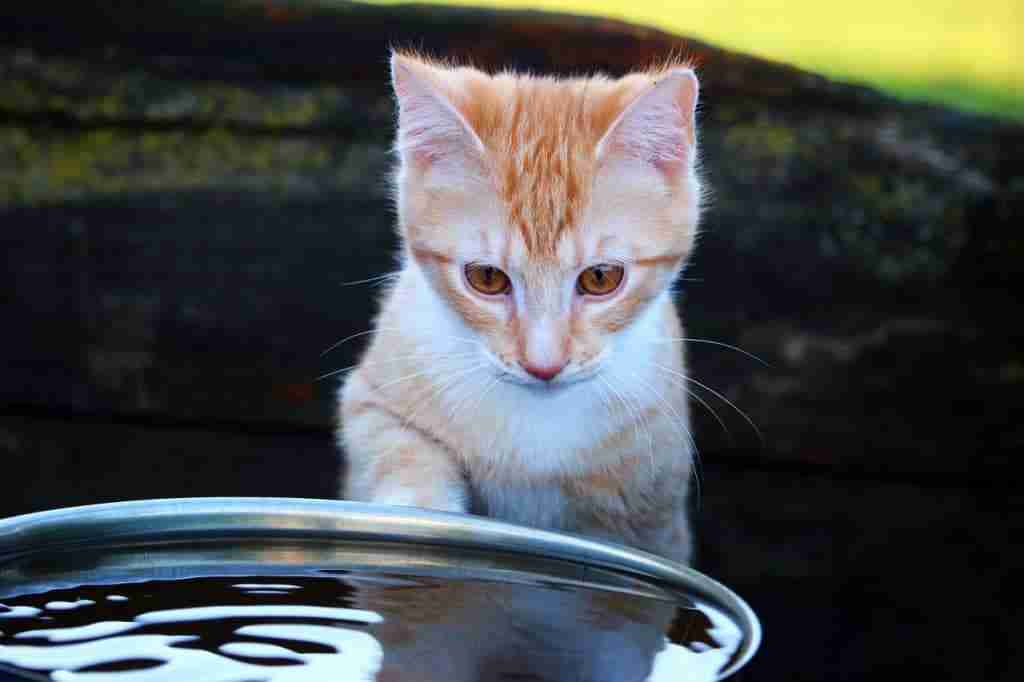
According to veterinary science, the technical point for dehydration occurs when body fluid levels drop by more than 5%.
Fluid loss between 5% to 10% presents a moderate case of dehydration, while losses over 15% are severe, life-threatening cases for your kittens.
Dehydration is a fatal condition for kittens, and owners need to get their animals to a vet immediately for treatment.
How to hydrate a sick kitten? Don’t try to treat the dehydration yourself unless you have the right medication, equipment, and veterinary knowledge.
For a kitten’s body to function optimally, its body composition needs to remain around 60% water, minerals, and electrolytes. Electrolytes like sodium, potassium, and chloride are essential for stabilizing the nervous system.
If the kitten experiences dehydration, it skews the delicate mineral balance. It exacerbates the speed of dehydration and the severity of the kitten’s condition.
In this process, known as “hypohydration,” the kitten’s body starts to pull water from the organs to satisfy the body’s hydration demands.
As a result, the kitten’s biology experiences a lack of water, producing issues with digestion, circulation, and removing toxins from the bloodstream.
What are the Common Symptoms of Dehydration in Kittens?
It’s challenging for owners to identify to early stages of dehydration in their kittens. Symptoms are mild, and they don’t present any visible problems. However, as fluid loss accelerates, you’ll start to notice the signs of dehydration.
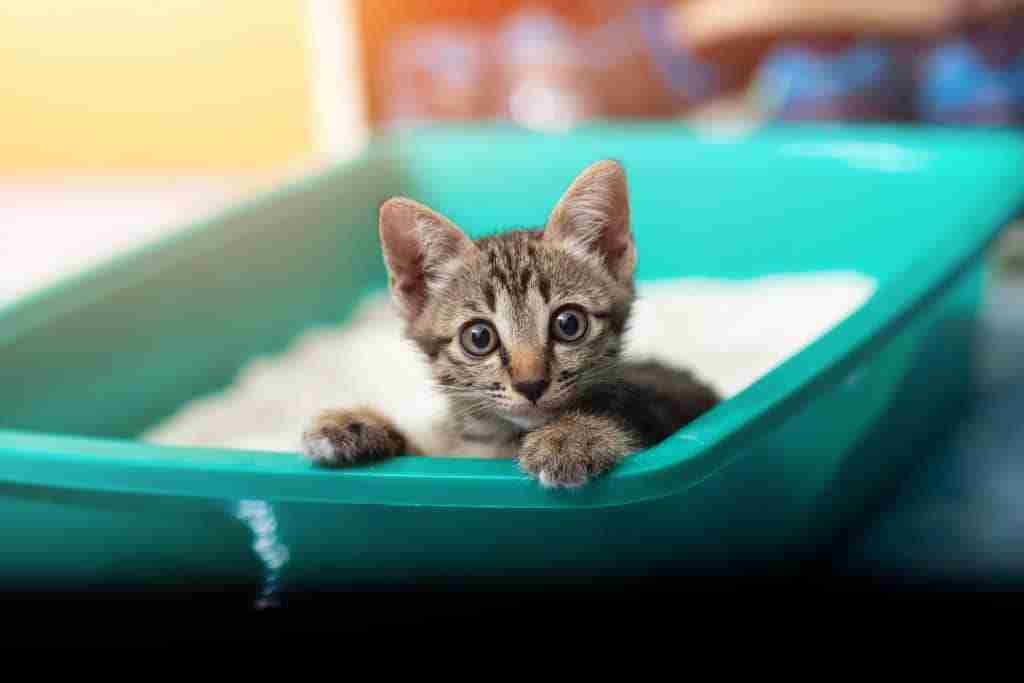
If you notice signs of dehydration, pack your kitty in the carrier, and head to the vet. Don’t try to treat dehydration at home.
Here are some of the signs of dehydration in cats.
- Dry tongue and mouth.
- Sunken and unresponsive eyes.
- Lethargy and weak response to your presence.
- Constipation or diarrhea.
- Poor skin elasticity.
- Weakened capillary filling.
- Elevated heart rate.
- Polyuria (frequent urination).
Some of the signs are hard to identify. Kittens like to sleep, so the lethargy might be challenging to spot.
The dry tongue and mouth are obvious signs, as are the sunken eyes. If you notice any of the symptoms, rush to the vet as soon as possible.
What are the Causes of Dehydration in Kittens?
Several factors lead to dehydration in your kitten. As mentioned, kittens have a harder time regulating body fluid levels, and they have a higher risk of dehydration than adolescents or adults.
Don’t keep newborn kittens on heating pads or have difficulty regulating body temperature, leading to rapid fluid loss and the onset of dehydration.
Some kittens may also have underlying issues involving kidney infections. Other organ problems with the thyroid or digestive system may also cause dehydration in kittens.
Vomiting or diarrhea can also lead to fluid loss resulting in dehydration. Weaned kittens already drinking and eating might get picky with their water.
In general, cats don’t like it when their water bowl is dirty, keep it clean and stocked with fresh water. Cats also prefer cold water to room-temperature fluids.
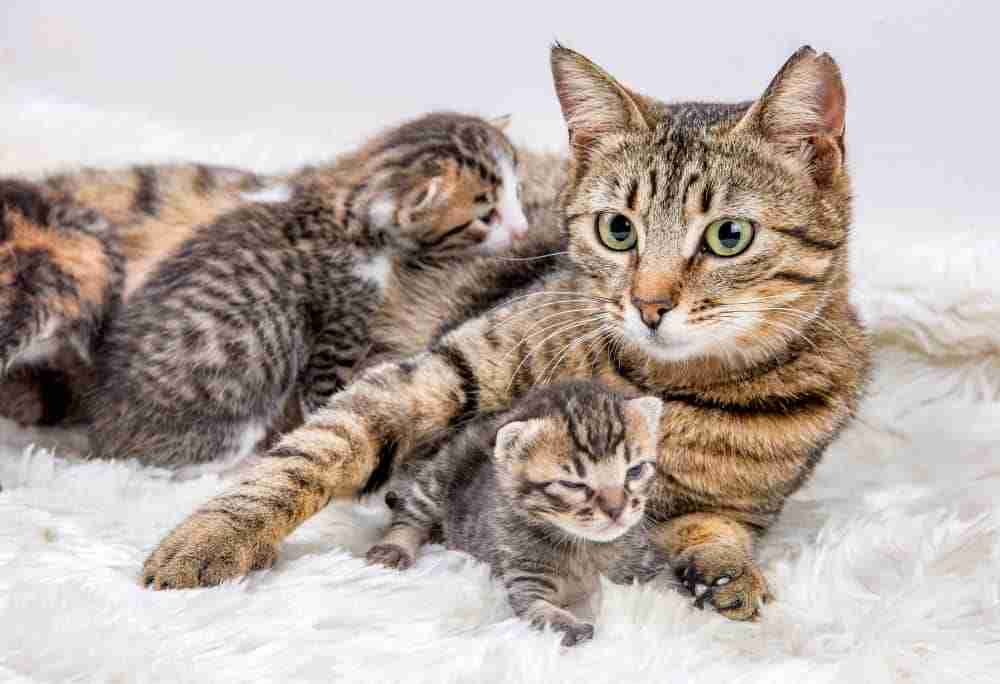
How Does the Vet Diagnose Dehydration in My Kitten?
If you suspect your kitten is in a dehydrated state, you need to immediately get them to the vet.
Trying to feed them ice shavings or administer water through a dropper won’t work, and your kitty’s situation will continue to deteriorate.
If you want to check to see if dehydration is the problem before rushing to the vet’s office, try the tenting technique.
Tenting or “Turgor” tests involve pulling on the skin around the scruff of the kitten’s neck. If the kitten has adequate hydration, the skin flattens to the normal position within a second or so. If the skin stays tented after pulling, then the kitten is dealing with dehydration and requires immediate medical attention.
During the consultation with your vet, the Turgor test will be the first thing the vet does to assess the situation.
They’ll also conduct a thorough physical examination of your kitty and ask you questions about what you’re feeding your kitten and its eating and drinking habits, depending on its age.
The vet will also enquire about the onset of symptoms and when you noticed them show up in your furry friend. The purpose of the questioning is to uncover the problem causing dehydration.
The vet needs to resolve the underlying issue so it doesn’t experience fluid loss after receiving rapid rehydration treatment.
The vet may also take a blood sample and send it to the lab for analysis. The tests involve looking at the kitten’s biochemical profile and blood count.
The vet may also order a packed cell volume test, along with tests for total blood proteins to identify the presence of dehydration from the concentration of protein and cells in the kitten’s blood.
A urinalysis is also useful in determining electrolyte levels to assess the kitten’s kidney function. The vet will also look at urine concentration, which occurs in many cases of kitten dehydration.
How Do You Treat a Dehydrated Kitten?
If you suspect your kitten is dealing with the onset of dehydration – get them to a vet ASAP. Please don’t waste time trying to get them to respond to home remedies like shaved ice or dropper feeding.
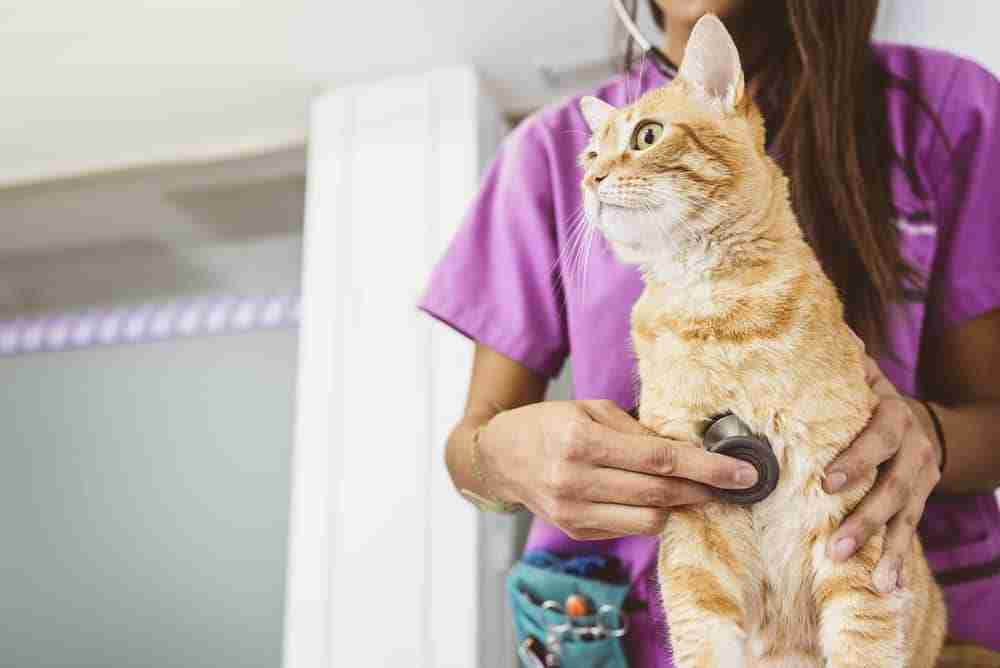
By the time you notice the dehydration, chances are your kitten is already in a bad state. Failing to get them the medical attention they need results in death.
After visiting your vet and receiving the diagnosis, the vet starts your kitten on a rapid rehydration program to help them reverse the effects of dehydration.
Each dehydration case is unique, and the survival probability of your kitten depends on its condition and the extent of the dehydration and internal damage.
If the kitten doesn’t receive fluids fast enough, it leads to severe, life-threatening complications for the animal.
Administration of Fluids
After ensuring no underlying health conditions are causing the dehydration in the kitten, the vet launches the rapid rehydration program.
With this method, the vet uses intravenous rehydration methods to restore the kitten’s body fluid levels and mineral balance.
Most vets use a hydration solution known as “Ringers Lactate.” This IV fluid contains the right balance of water and minerals to rehydrate your kitten rapidly.
Typically, the vet attaches an IV line in the skin between the shoulder blades of the kitten. The IV line feeds the solution subcutaneously below the skin. Most kittens are too small for intravenous rehydration.
The vet may send you home with the kitten after showing you how to monitor the process. The vet may also show you how to change the IV bag and how to set it up so you can do it at home.
Before administering the Ringers Lactate to your kitten, make sure you heat the fluid to a warmer temperature.
Take it out of the fridge and leave it in the sink with some warm water for a few minutes.
Medications
If your kitten is vomiting excessively, it can lead to dehydration, especially if it doesn’t replace the fluids.
If the vet feels the vomiting is a problem, they’ll administer antiemetics drugs to stop nausea and vomiting in your kitten. These medications inhibit the receptor response in the brain that triggers vomiting.
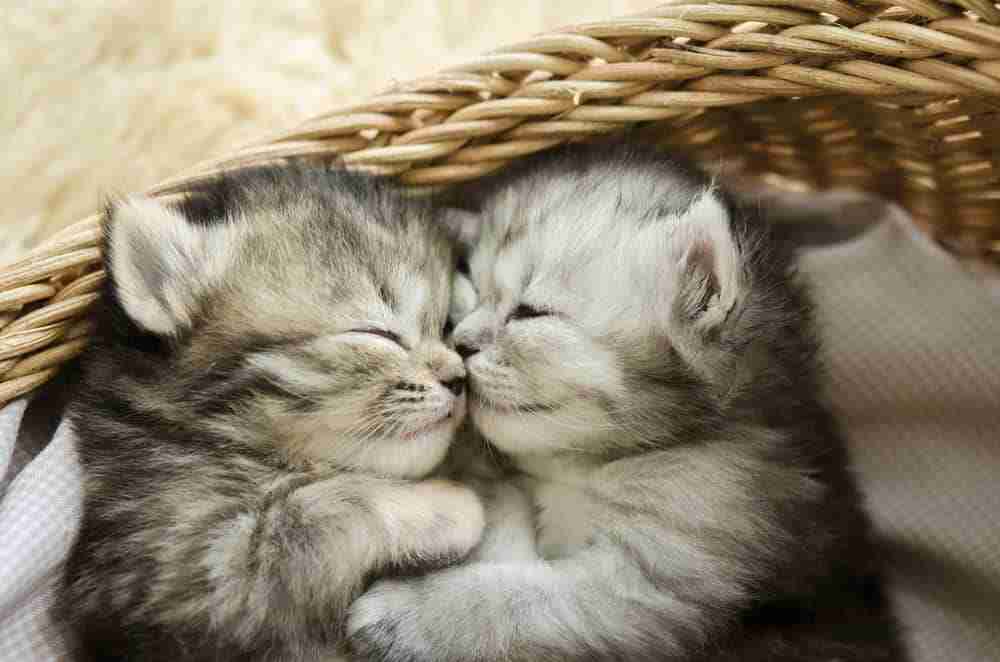
Recovery of Dehydration in Kittens
After the vet discharges your kitten from the hospital, you’ll need to monitor it for several days to ensure it recovers. Not all kittens will recover, but there’s a chance if you get to the vet and start treatment early.
Ensure you keep water readily available for your kitten, and keep the bowl clean. Change the water at least once a day, and keep the water bowl out of the sun – kittens won’t drink warm water.
Make sure you keep your kittens out of the sun to prevent them from overheating and avoid the use of heat pads or blankets in your kitten’s bed.
If the vet recommends you keep the IV rehydration going, do it for as long as necessary, and return to the vet if the kitten’s health deteriorates.
Tips for Saving a Dehydrated Kitten – Key Takeaways
- Kittens have issues with regulating body temperature, leading to fluid loss and dehydration.
- Identifying the signs of dehydration early on can save your kitten’s life.
- Use the Turgor test to check if your kitten is dehydrated.
- Don’t try to deal with dehydration at home – get to the vet ASAP.
- Dehydration in kittens can occur for several reasons.
- Fluid loss and mineral balance are the most common causes of dehydration in kittens.
- Avoid using heating pads or blankets in your kitten’s bed.
- The vet treats dehydration after examining and diagnosing your kitten.
- Vets treat dehydration using IV fluids administered through a drip in the shoulder blades.
- You may have to continue this treatment at home under the advice and direction of your vet.
- Most kittens recover from dehydration, provided they get medical attention in time.
- Keep your eye on your kittens for relapse during the first few days after returning from the vet
